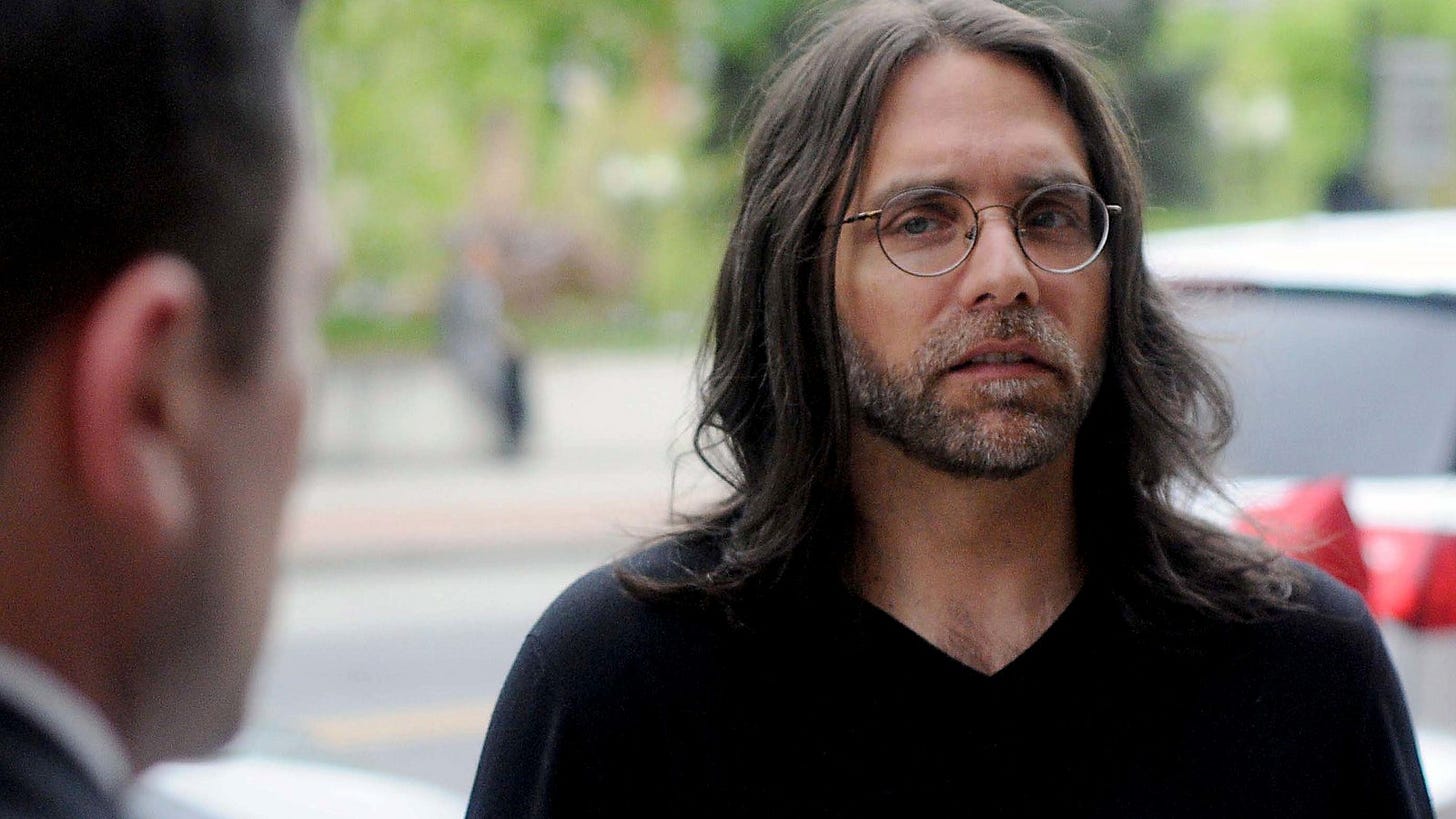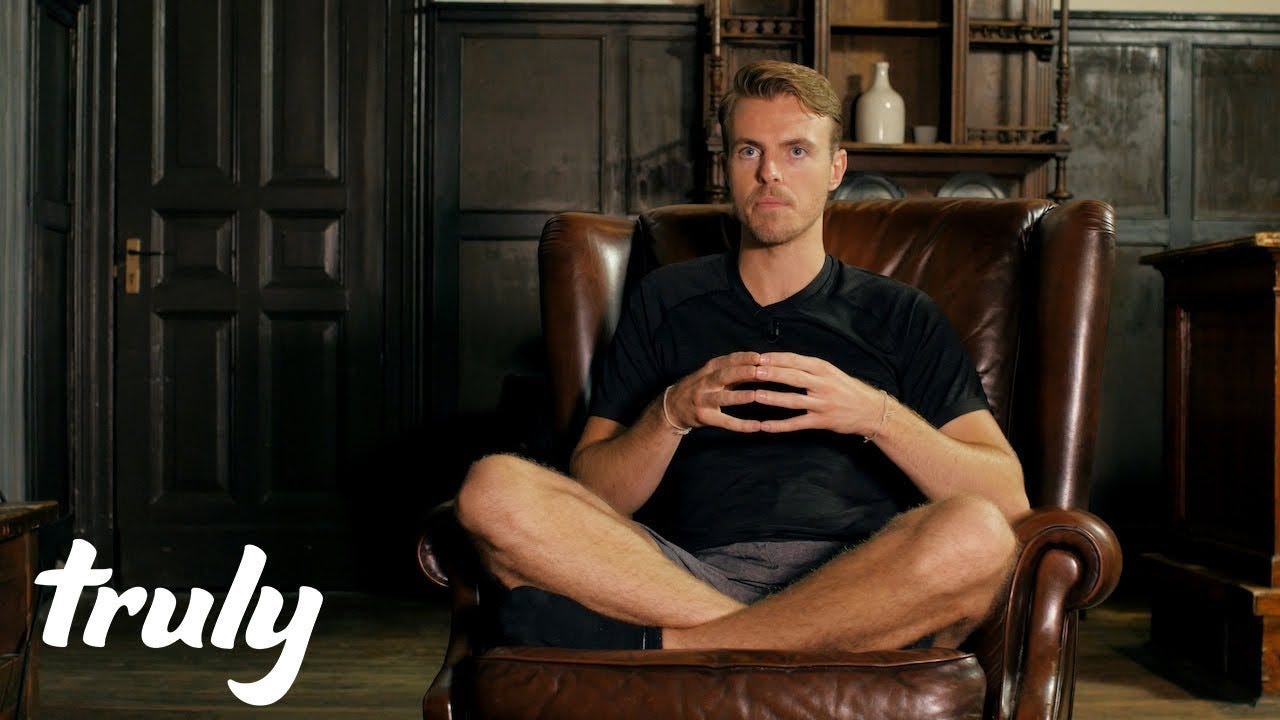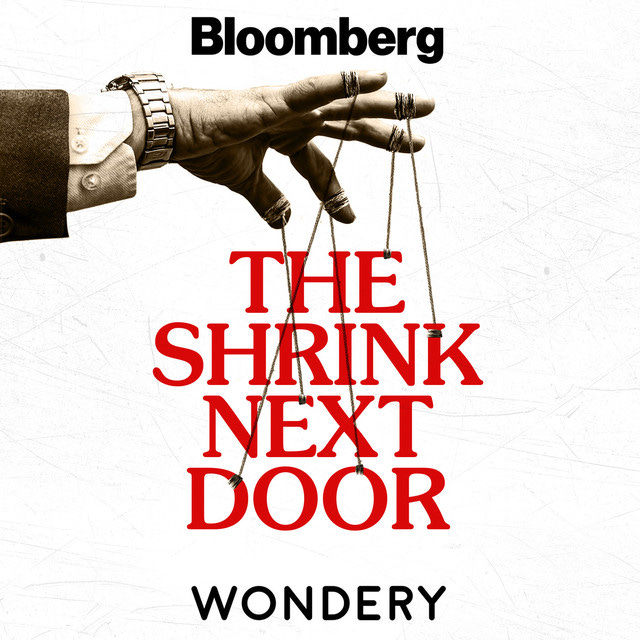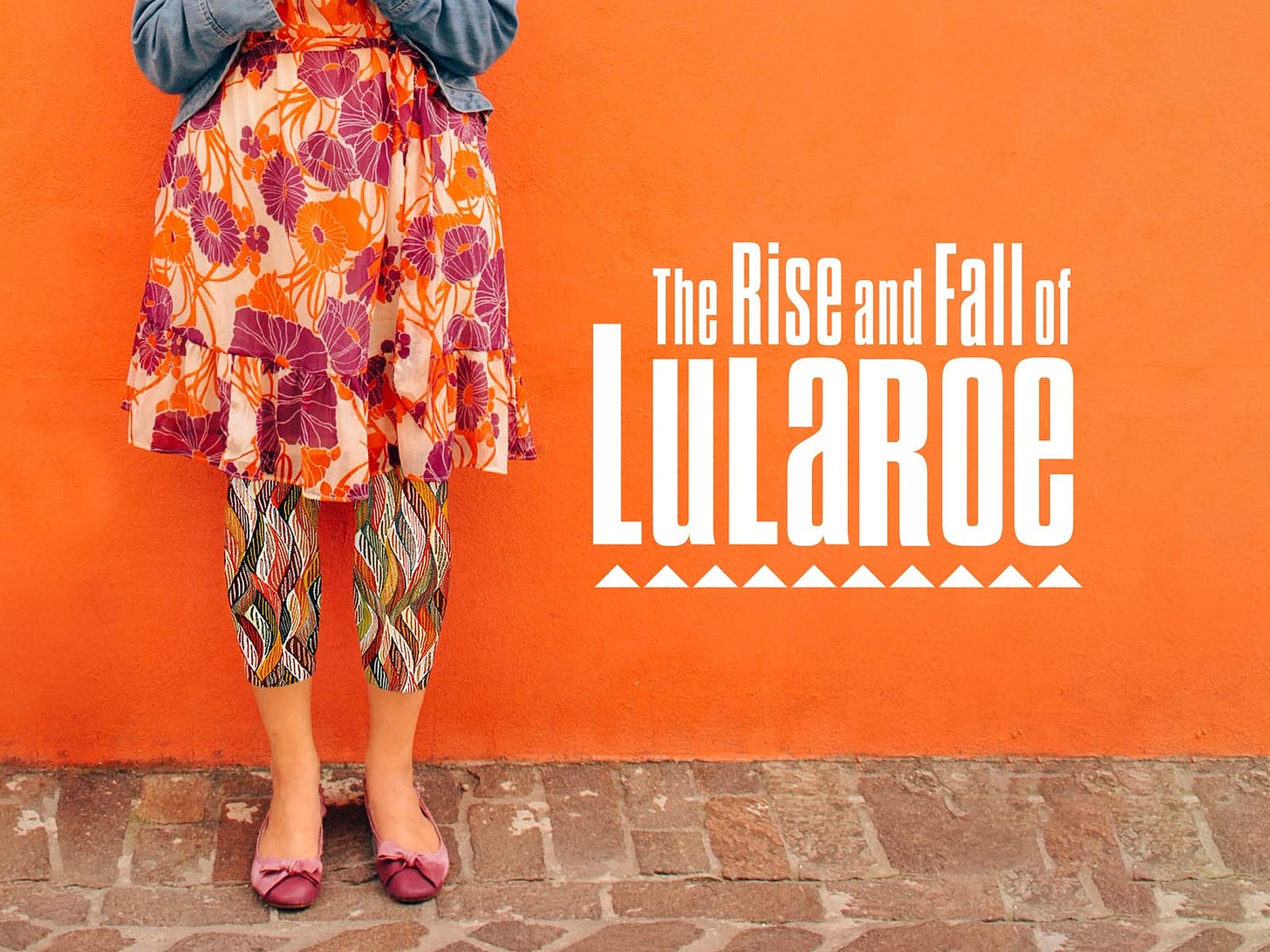It was the iconoclastic, game-changing clinical psychologist Carl Jung who famously said, “Beware of unearned wisdom”. Given that he was the foremost expert in archetypes and a student of shamanism and tarot, I’m inclined to listen to him…particularly in these strange and very grift-y times.
Challenging economic environments like the one in which we currently find ourselves breed charlatans. I mean, we already exist in a veritable petri dish teeming with unethical cult leaders, inexperienced or incompetent life coaches, social media scammers and impersonators, and exploitative spiritual gurus, but I’ve recently noticed several folks (perhaps of dubious moral character) already making the “unexpected” pivot into becoming a spiritual guru. You know. Just in time for the economic recession and mass layoffs and high interest rates and inflation and their client base drying up overnight.
I mean, have you looked at the price of eggs lately?!?
I guess you could say that this pivot is a strange coincidence in that it precisely coincides with their business and/or industry struggling. I mean, it's a pretty cool trick to suddenly decide you’re divinely inspired and woo-motivated in a way totally unrelated to the economy or financial failure of your actual career, isn’t it?
How. Lucky.
But before we dig too much further in to spilling the tea, it’s important we level-set on some terminology. For instance: what is a charlatan, you might be wondering? The interwebs says it’s, “a person falsely claiming to have a special knowledge or skill; a fraud.”
In other words: charlatans are individuals that have not earned their perceived- or claimed- wisdom. You know: the people Carl Jung was warning us about.
What these charlatans do have is a robust instinct for exploiting opportunities and a keen awareness of when and how to commoditize and capitalize on the fear, uncertainty, and scarcity that comes with these challenging economic and social conditions. They have an almost magical ability to convert our dread and suffering into dollar, dollar bills…but for them. Like, in their bank account. Not in ours;)
And not only do these villains put me on edge and take advantage of my clients, collaborators and friends, but they poison the well with regard to the perception of my profession, further reinforcing negative stereotypes and making our work all the more difficult. I believe that it’s on our community to be transparent and hold our own to account, reinforcing higher standards and expectations.
So, what do we do about this? How can we be curious without getting taken? How can we explore spiritual and personal development without falling prey to a narcissistic parasite? What are the red flags to keep an eye out for? And how do we in the woo community manage the barbarians at the gates, perhaps approaching us as fake friends or false collaborators?
I’ve pulled together some key red flags, myths and misconceptions, as well as tips and tricks and resources to sidestep these potential pitfalls on our collective spiritual adventure. Wherever possible, I’ve tried to think of either famous examples or specific stories from my own long, long life wading in the business of woo.
And it all started with a simple, recent experience…
A Psychic’s Story
I had an interesting interaction during a one-on-one TOTEM Tarot Reading the other day. The client was downright lovely: authentic and sweet and engaged and curious. During the reading, they mentioned that they initially felt I was “the real deal” because they heard me on a recent episode of Nichole Bigley’s podcast: A Psychic’s Story.
Now, Nichole- the host of the podcast- is actually a legit psychic. And a good person. And funny and smart and a lot of other great stuff. We paused recording our podcast episode at several junctures to bond over our shared experiences, relieved to find another actual psychic with the right motivations (i.e. we don’t sell weight loss supplements or magic underpants). What’s more: her podcast is awesome, often featuring very compelling psychics and practitioners with fascinating stories.
But the assumption that I was a genuine shaman or a good person simply because I was on a podcast triggered something in me. I felt the need to get really, really honest and warn this lovely, naturally psychic new client against the potential pitfalls of such assumptions. In my typically literal and often abrupt fashion, I said, “I got on Nichole’s podcast because I hired a podcast agent to get me on shows to promote my work with TOTEM. When I moved from Chicago to Texas, it disrupted my business and I knew I had to get out into other markets with new clients. People pay for access to a lot of stuff like this- it’s not just given to you because it’s been deemed that you’re a legitimate psychic or good person. There are no tests or criteria to pass.”
She kind of just looked at me, so I did what I usually do: I doubled down and made it worse, “And you know what else I learned in the last year? I was asked to write an article for a magazine and the owner and I connected to discuss it after publication. She seemed very interested in future collaborations and said something like, ‘We’ve got to you get you on the cover next year!’ I naively thought this was because of my article’s success or her recognizing my talent as a writer.
Turns out: you pay $20K to be on the cover of this particular magazine, so what I got was an invitation to PAY THAT MONEY in exchange for being given the cover. It kind of stunned me. I don’t normally see myself as a naïve person, but in this case, I was…and then I wondered what other, similar things are pay-to-play like this.”
My client’s jaw dropped. I had lifted the veil a bit, and she was processing the data. I wrapped it up by saying, “It’s good to be curious and find new practitioners and, in this case, I do happen to also be ethical and well-intentioned. But eminence- things like covers on magazines or very large amounts of social media followers- does not, necessarily, translate into real quality or a commitment to ethics. And, sometimes, bad guys will spend money in a cynical ploy to wrap themselves in the sheep’s clothing they need to lie, cheat and steal.”
True story.
That said, it is actually a good podcast episode. I know. LOL. Way to promote it, Rach!
So, if you’re interested, check it out and like, share and subscribe to A Psychic’s Story HERE if you want to listen, like, share or subscribe. And Nichole really is a legit psychic and good person, and we’re definitely going to collaborate in the future so keep an eye peeled for a dragon-themed Substack on here in the future!
Myths of the spiritual industry
This interaction with my awesome new client got me thinking about the bigger picture: what are the other myths of the spiritual or personal development “industries”? I immediately conjured up three major myths off the top of my head:
Famous + Successful = Trustworthy Expert
Myth: If someone is famous or rich as a result of their psychic or personal development efforts (i.e. coaching or consulting), they must be an expert and be ethical. After all, if they weren’t very good at what they do, they’d never be this successful. And if they were a fraud or stole from people, surely someone would have sued them or they would have been shut down by the authorities.
Truth: Some of the most abusive and criminal perpetrators have been famous and financially successful, if not downright revered by the community. Bikram Choudhury is a millionaire, industry-leading yogi (the creator of Bikram yoga). He is also a serial rapist that evaded charges for decades while expanding his empire and being on the covers of magazines and featured by mainstream media.
Check out this harrowing documentary about Bikram on Netflix here: https://www.netflix.com/title/80221584
A Wolf in Sheep’s Clothing
Myth: If someone seems nice and kind and says they’re spiritually-evolved and ethical, they are. If they live a mindful life- like embracing veganism or contributing to animal charities- they are actually morally superior. This is especially true if they are endorsed by another spiritual leader, foundation, or related association of eminence in the world.
Truth: Most wolves wrap themselves in metaphorical sheep’s clothing. Narcissists, scam artists and abusers of all varieties know how to make themselves seem safe, trustworthy, and moral. It’s reported that Keith Raniere of the cult NXIVM paid the Dalai Lama $2 million USD to come to Albany, NY to endorse him and his organization for their commitment to ethics and high ethical standards (see image above of the ceremony). Keith has faced credible and consistent accusations of child rape and abuse and has been sentenced to 120 years in prison for human trafficking and child pornography, among other fun felonies. So, ethical standards are not so high after all, are they? And who knew the Dalai Lama took money in exchange for this stuff? And who else out there is taking money to endorse individuals and groups for being moral?
The rabbit hole runs deep, guys.
Check out the Vow, the HBO Documentary about NXIVM and Keith Raniere here:
The Dunning Kruger Effect
Myth: If someone says they have expertise or certification in a particular area- and puts this on their website, Linktree and/or LinkedIn- they’re being honest. People accurately perceive and represent their competence and capability and, if they lied about it, they would be found out and forced to take these lies down. In other words: we would know.
Truth: People often overestimate their capabilities by extrapolating out their basic areas of competence to areas in which, well, they have no business playing the expert. This is called the Dunning Kruger Effect, and it’s everywhere (thanks social media!). There are coaches, consultants, psychics and practitioners out there making money doing shit they don’t understand and about which they have no expertise. There are almost no governance mechanisms to govern or regulate coaching, personal development, psychic work or energy work. And if there were civil lawsuits that settled out of court or previous business names that have since been dissolved, odds are: you’d never know.
Red flags
These are just a few of the myths surrounding the world of woo, and when reflecting on these (and much, much more) I put pen to paper to generate a list of additional red flags to keep an eye out for while exploring the spiritual borderlands:
Made up names
When I was just a young shaman, navigating the world of woo for the first time, I ran into a lot of teachers, business owners and “leaders” who had changed their birth name into something more spiritual, exciting and indicative of their “core essence”. While I initially thought this was just a normal continuation of their spiritual growth, wanting their name to reflect their true self, I came to discover a strange correlation: all of these individuals had been involved in lawsuits, bankruptcies or civil and criminal litigation while going by their previous name(s). Now that they used a Pagan, Sanskrit or simply OTHER category of name, it was much harder to dig into their backgrounds or learn some of the less savory details of their time in the business of woo.
What’s more: cult leaders like Keith Raniere and L. Ron Hubbard went by made up names as a means of subconsciously influencing their followers, effectively becoming less and less human- and more and more divine- with the use of their chosen new names. Psychologists have been studying this phenomenon and believe that cult leaders understand the coercive influence and control this new, fancy name gives them.
Pro tip: Do not feel nervous asking someone for their real name or inquiring about their business or professional background. If someone is respectful while asking about my background, education or expertise, I’ll answer ALL the questions. What’s more: I use the same name I was given at birth, and I’ve only ever had one business name which is easily searchable online (and is registered with the State of Texas and the US Trademark and Patent Office). If someone gets weird about you asking for their real name or for details about their background or experience, run in the other direction.
Image: (Above) Keith Raniere being a creepy cult leader.
Love-bombing
Navigating the world of woo is going to put you in proximity to narcissists and abusers and, just like in the dating world, these villains will work to disarm you by love-bombing you. Love-bombing is the initial phase of a relationship with a narcissist, one in which they saturate you with compliments and gestures that make you feel special, valued and appreciated. This leaves you disarmed and open and vulnerable, and also feeling a bit in-debt to this generous soul. But what this really is is an example of a cynical indoctrination campaign, and sooner than later the love-bombing bill will come due.
Last year, I worked with an agency to take on a podcast tour to get the word out about TOTEM Readings after our move to Texas. This podcast tour introduced me to hundreds of new people (including the audience), and at this scale it was hard to manage discernment or research into everyone’s backgrounds or motives in real time. A few of these people seemed really into me, which of course triggered my spidey senses to pay close attention.
I made a deal with myself: that I would accept kindness and support so long as it stayed that way and didn’t morph into an emotional or financial hostage negotiation (as these dynamics so often do). I promised myself I would stay vigilant and push the eject button the moment it got weird. And it did. One particular pair eventually just said the quiet part out loud: they wanted to pay me to send them my clients. Turns out, I’m actually not that special or interesting after all. Rather, it was the business I had ethically and painstakingly built over a decade that was so attractive and desirable to them. I know: what a shock.
Obviously, I said “no”. The reason that TOTEM has endured and grown is in large part due to the transparent, ethical way in which I conduct business. It wasn’t even a momentary debate to consider eroding my own brand and client relationships to get a bit of quick cash in the short-term. But I do remember exhaling, shaking my head and thinking to myself, “So, this is what the love-bombing was all about.”
Pro tip: Collaboration and kindness are great, and I certainly collaborate with other practitioners that are awesome, ethical people. But if someone triggers a strange physical sensation- such as tightness in the chest or raising the hairs on the back of your neck- give yourself permission to eject. Our body- and energy body- knows what’s up, and it’s looking out for us. Be on the watch for people that are overly familiar or intimate given where you’re at in your relationship and give them a wide- and very conscious- birth. If you do get linked up with unsavory characters, remember that you can leave and discontinue interacting at any time. If appropriate, mute and/or block them on social media, minimizing their access to your image AND your community.
NLP (neurolinguistic programming) + Hypnosis
NLP is considered to be unethical pseudoscience by the field of psychotherapy, and hypnosis is professionally (and rigorously) monitored through medical boards- meaning it should only be implemented as a tool by those licensed (and educated) to do so. Both of these mechanisms offer undue influence over your subconscious mind, quite literally meaning that you would never know if your brain had been meddled with- or how!
The podcast (and television adaptation) The Shrink Next Door offers a real-life example of a certified psychiatrist misusing this technique, ultimately manipulating their patient into giving them control of their Hamptons home and the majority share of their business!
Keith Raniere and Nancy Salzman used these techniques heavily in the cult NXIVM, building the foundational mind-f*ckery work to unduly influence members into increasingly extreme, abusive and dangerous acts. You know: like branding women.
And now hundreds of folks that were marketing coordinators and administrative assistants just a few months ago are suddenly professionals at NLP and hypnosis, even offering trainings to certify you in these techniques- and all without needing to go to medical school or anything! What’s more: when they “train” you and you go out into the world to then do your work or train folks, they get a cut of the action! That’s called a pyramid scheme- aka an MLM- and we dig into that further below, too;)
Pro tip: Do not let rubes monkey around in your f*cking brain. If they did something untoward in there, you would literally never consciously know about it. I received hypnosis from a medical doctor and certified hypnotherapist for a medical procedure (to help with my anxiety and PTSD) and I still researched him, even asking for and then calling references to make sure real patients received real care and didn’t start clucking like a chicken while handing over their life savings. So, stay hard out there guys. Head on a swivel.
Check out the awesome The Shrink Next Door podcast HERE:
MLM (multi-level marketing scheme)
So, ever think about someone’s business model and not understand how they actually make money? Like, there’s no tangible good or service of value that you can detect that they might be charging money in exchange for? Or really ugly, stupid-looking leggings that no one would really wear (see image above)? And do they use stupid f*cking terms like “sales funnel” or “street team” that real people in real business never use? Yah, it’s probably a pyramid scheme, otherwise known as a multi-level marketing scheme (MLM).
MLMs need a constant funnel of fresh victims…er, I mean, “fellow entrepreneurs” to keep the shell game going, with the individual getting a hefty % of each new recruits’ $$$ passively via commissions and bonuses. This is how Herbalife, LulaRoe, NXIVM, Scientology, and many more organizations (and coaching programs) work. If you see aggressive social media sales tactics with one-time special rates to “get in at the ground floor” or mentions of learning how to “make money while you sleep”, it might be a MLM.
And, for the record, the new recruits at the bottom of the pyramid NEVER recoup their initial investment and usually end up in financial ruin, filing for bankruptcy and even getting divorced from their spouse who suffered as a result. It’s devastating and criminal, but MLMs explode during economic recessions as people get scared and desperate…and sign up for a squirrely deal.
Fun story: I did a podcast interview back in the day. When I got to this individual’s work/ live space, they had a bunch of food prepared. While nice, I thought it was a bit strange- how they were talking about the ingredients and whatnot- but ultimately nice, right? I mean: what if I had been hungry? I would have liked…the heated up frozen vegetable pasta meal, right? Probably not, but you get the gist;)
We chatted before digging into the interview and this individual told me the tale of all tales about their professional background and current focus: they said they work in the inner city, connecting with underserved neighborhoods and “communities of color” (her words- don’t at me!) to teach them how to grow, prepare and eat healthy foods. My first reaction? I was blown away by this person’s generous spirit and super impressed with their work! More people should be supporting their communities and be generous with their time and skills! And, out of this excitement, I offered to connect this person to my husband who has actually done this kind of charity work with Common Threads and knows all of the Chicago-area community garden resources. When I got tactical and specific, she visibly and suddenly shrank, getting all vague all of a sudden and changing the subject.
It was odd.
So, later that week, I was catching up with a friend that this person and I had in common who let me in on the real deal: this person works for Herbalife, perhaps the most pernicious pyramid scheme in the world. What’s more: she told me to watch the documentary Betting on Zero, which highlighted Herbalife’s exploitation of communities of color, focusing their efforts on new immigrants seeking a better life and genuine business opportunity. So, it really isn’t about helping these communities, and as I reflected on her strangely exhausted description of Herbalife, I realized: she knows what she does and she knows it’s pretty bad, which is why she has to tell a cloying, fairy tale version of her career. You know: instead of telling the truth. Because the truth is pretty unflattering.
Pro tip: Look out for anything claiming to help people “make six figures in six days!” or “live your dream life without lifting a finger!” or “make money while you sleep and travel!” or similar. You should never have to buy into a consumer product company via lotions or protein shakes that you then have to sell to recoup your $$$. There are no actual undiscovered magic tricks in business that help you make money while offering nothing of value in exchange…unless, of course, you’re a criminal. If you don’t understand someone’s business model, value proposition, or you just don’t like the way they make you feel, steer clear.
Image: (Above) from documentary The Rise and Fall of LulaRoe
Check out this incredible documentary series on Amazon all about LulaRoe, the MLM that sold UGLY leggings HERE: https://www.amazon.com/gp/video/detail/B09N7N24WH/ref=atv_dp_share_cu_r
Word salad
Word salad is defined as, “a confused or unintelligible mixture of seemingly random words and phrases”, and it’s everywhere in the world of woo and personal development.
When word salad comes up, I always think about a scene from the incredible movie The Big Short. In this scene, Margot Robbie is in a bathtub explaining what subprime mortgages and related financial products really are. The narrator says, “Does it make you feel bored? Or stupid? It’s supposed to.” Meaning that nefarious individuals and groups purposefully use language that makes things seem complicated and important when, in reality, they’re just trying to make you feel stupid and bored so that you don’t ask too many questions or do too much research. Or, god forbid, you challenge them with the truth.
Intelligent practitioners that do real work will communicate with you in a simple, straightforward and confident way. While some spiritual concepts are inherently intellectual or nebulous- like the Tree of Life in Kabbalah- the practitioner, coach or trainer should make efforts to democratize the information, making it accessible and usable by you. If they can’t, it might mean that either a.) they don’t even understand the concept themselves enough to explain it or find a suitable metaphor OR b.) they are purposefully obfuscating something unethical or criminal.
Pro tip: Be on the lookout for word salad. If you don’t understand someone’s message, business model or value proposition, do not assume it’s because you’re stupid. In fact, it might be a sign that you’re smart! It’s a sign of integrity and authenticity when someone just ATQ’s: Answers. The. Question.
Check out this hilarious example of word salad by Nippy Ames, NXIVM survivor and co-host of the A Little Bit Culty podcast:
Covert (or fragile) narcissism
There are a lot of narcissistic people in the world of woo and the business of personal development, and many of these individuals embody something referred to as covert- or fragile- narcissism. Covert narcissism is defined as, “the more introverted side of NPD (narcissistic personality disorder). A covert narcissist experiences the same insecurities as an overt narcissist, but internalizes their self-importance, often while hyper-focusing on their need for attention.”
These narcissists, abusers and exploiters will go out of their way to come across as a good person on social media, more often than not conveying the energy of a victim or empath or mutant combination of the two. These individuals cry on Instagram lives or reels, and regularly post about social causes focused on a tragedies and crises. They frequently talk about how they’re suffering- or how their businesses or industries are struggling- as a means of getting you emotionally and energetically invested in them.
They. Know. What. They’re. Doing.
Pro tip: It’s good to care about people and have empathy, but discernment is going to become increasingly crucial as we head further into this recession. Does this person have normal ups and downs or do they always seem to be in some kind of crisis? Are they always the victim in a negative exchange with others or the “system”? Do they productize and commoditize suffering to make money off of it (like merch to “raise money” for women’s rights while giving themselves 99% of the profits…right when Roe v. Wade gets overturned?). Pay attention and remember: narcissists do not feel weird exploiting situations or people for gain. They don’t have a conscience the way you and I do. And they won’t hesitate to take advantage of your empathy to your detriment. It can be hard to remember that their brains are literally different, making them capable of things we would never consider, so make it front of mind when dealing with others.
Image (above): Nicki Clyne claims that Keith Raniere and his loyal followers are the real victims of a criminal conspiracy being perpetrated by the FBI. Yah. I know. It’s sad.
Spiritual bypassing
So, LinkedIn is really the worst. It’s like a sadder, older version of Match.com. But, alas, I go on LinkedIn from time to time to manage freelance requests or see what kind of ghouls are visiting and viewing my profile.
It was during one such recent sojourn to the digital land of the spiritually-dead where I discovered something truly remarkable from a “business coach” whose model still eludes my understanding. Five years in.
In other words: I have no idea what they do for a living despite having asked them to break it down for me, having read their website and newsletters, and have even asked others we have in common to explain their model to me.
This business coach had posted something incredible about pessimism vs. optimism vs. realism vs. opportunism, all using a pretty stale infographic and metaphor of viewing the proverbial glass as being either half full/ half empty. While this isn’t so odd and certainly makes sense at a glance, a few things jumped out to me:
Given the mass layoffs impacting tens of thousands of American workers, as well as the collective pressures of inflation and raising interest rates, “yelling” about pessimism seemed a bit insensitive and tone-deaf to me. I mean, read the room. The market is bad right now and people really are suffering and, while wallowing in that isn’t going to help much, we also need to provide space for people to feel their feelings, process their experiences, and frankly just acknowledge the reality of the economy at the present moment. Lying to ourselves isn’t exactly going to help, either.
Just then, I remembered a video a client and friend sent to me featuring a coach and entrepreneur who was actually being honest about the economy and needing to put one of her businesses into a bankruptcy (see video below). In this video and several of her others on Youtube, she explains that other coaches were advising her to lie to her clients, insisting that the only way she was going to stay in business and pay her bills was to exude an air of success and positivity, regardless of the reality:
So, something to consider: if your job is to coach others, you need to embody success as a living, breathing case study of your own value proposition to others. If you’re failing, why would anyone else pay you for advice or guidance? Now, this means that you can never really fully totally believe the image being conveyed by these individuals because they have a literal and immediate profit motive in convincing you they’ve figured it all out. See the conflict of interest there?
And that is spiritual bypassing. Even if they’re being sincere about their toxic positivity (which is a stretch), it’s really irresponsible to present this as the correct state of mind. Facing our challenges is the fastest and best way to start to get into the solution, perhaps leveraging woo tools to manage our mindset and outlook but getting into reality to solve our problems, too.
For my part, I try to tell the truth, even if it means some clients might be reluctant to work with me. Did I have a tough couple of years during and after Covid? Yep. Did I have to invest heavily in TOTEM after moving to Texas and uprooting my client base? Yes. But I’m also not selling business coaching services. I’m selling Spiritual Transformation Coaching services, an area in which my technical and hands-on expertise translates into a tangible value proposition regardless of what the economy- or my business- is doing.
Pro tip: If you’re considering working with someone who is a business coach or business expert, ask to see the “proof in results”- i.e. their numbers. How much return on investment has their model or advice translated into for their clients? What measurable, quantifiable value will you get for signing up for their program? Examples of long-term success? A lot of the coaches I’ve interacted with became coaches because- and they say this out loud- they were sick of working so hard. When you look at this through this lense, it’s almost as though their clients are their retirement plan. In this way, what they do isn’t a calling or their soul’s purpose; it’s just a workaround for needing to actually work for a living.
If it seems to good to be true, it probably is
In this appearance-obsessed world of social media, advertising and relentless marketing, it can be hard to separate fact from fiction. Things that look legit- or even aspirational- often aren’t, and without having a full-time private detective with resources and a research department, there is literally no way you are going to get to the real deal as a layperson just trying to navigate the landscape.
Case in point: the Liver King (featured in image, above). For years, he insisted he was “natural”, meaning that he did not take any steroids. Instead, he insisted he looked the way he did because of living according to “Nine Ancestral Tenants”, converting the attention into sales of his organ meat supplements. And he made MILLIONS of dollars doing this. And then, very recently, someone got ahold of his lab work and whistleblew on his more than $20K in steroids, peptides and hormones every month.
This is not a one-off example. Have you noticed some of the “lifestyle experts” you follow on Instagram losing a ton of weight and crediting their progress with “intuitive eating” or “healing [their] inner child?” Yah, it’s probably the diabetes drug Ozempic, which makes food literally repugnant to the user and seriously decreases appetite.
And wealthy women are taking so much Ozempic that diabetics, who need the medication for actual medical reasons, cannot seem to get their prescriptions filled. This includes children with diabetes, who are going without potentially life-saving medicine so that influencers and accountability coaches can pretend to have self-restraint and, better yet, the secret to sustained weight loss. Let me guess: it’s all about the Nine Ancestral Tenants, right?
Wrong.
Pro tip: If it seems too good to be true, assume that it is and take note of who is perpetuating it for your future reference. After all: the way someone does one thing is how they do everything. Anyone making crazy claims- like how a plant medicine ceremony or energy work session changed your body fat composition- is probably full of sh*t and has a profit motive to lie to you. There are all kinds of tricks up these folks’ sleeves, and they’re not going to tell you the real deal about it. And, for the record, I had a nose job when I had sinus surgery. I also get botox, and I’m about to go on hormone replacement to level me out after coming off of 23 years of the birth control pill. So, that’s my stuff.
Oh: and this is NOT my natural hair color;)
Who the f*ck is Jill?
So, all of this is good information and it’s important to be vigilant when navigating this ecosystem. But what happens if you take this vigilance too seriously and start to become paranoid or aggressive, seeing villains and scammers and problems everywhere?
You turn into an Etsy shop bully.
Yah, I got bullied on Etsy by another shop owner. Hard. And it’s because this person has been so damaged by scammers, frauds and similar that she literally confused me with one of these people and came for me in the most hostile and abusive manner I’ve ever experienced in my life.
And THAT is saying something.
The person they confused me with- someone apparently named “Jill”- was supposedly stealing her artwork and presenting the shop owner’s work as their own. Or something. It’s a bit confusing to navigate the communications which effectively defamed and slandered me and my business with flourish.
I worked really hard to de-escalate, repeatedly explaining that there had been a miscommunication and that I wasn’t the perpetrator. What’s more: I asked her to stop, reflect, and consider that I’m innocent and that she was abusing someone that did nothing wrong. And despite having blocked this person, they continued to message me, a feature of Etsy that’s garnered entire Reddit boards to discuss it.
Yah- it was a real headf*ck, and she was so vicious in her messages that I actually started crying…and then cried during date night out with my husband, having to excuse myself and use the restroom to gather my thoughts and feelings. Not a common occurrence around here, in case you were wondering. I seriously considered closing my Etsy shop or even taking a break from TOTEM altogether, noodling on the existential question: “If this is what it’s going to be, is it worth it?”
After a very restless night, I woke up to an email titled “I come in peace” apologizing. Apparently, she had “realized” I wasn’t the bad guy at some point over the night- perhaps “inspired” by the fact that I reported her to Etsy support and sent them screenshots of our conversation. I was relieved that she was going to leave me and my business alone, but quite a bit of damage had been done. I have a PTSD diagnosis and, given the level of investment and effort and care I’ve put into TOTEM, threatening it and my reputation in the industry absolutely devastated my nervous system. It took me days to recover- and lower my heart rate- and I still haven’t responded. Not sure if I ever will.
But, among many insights and lessons learned that came from this interaction, I realized that this person was a kind of Ghost of Christmas future, representing a bitter, paranoid and aggressive version of what we can all turn into if we fixate too much and too long on the negative. I did not ever want to be like this person or do this kind of damage to perfectly innocent, nice people. I also don’t want to live in the kind of mindset that makes me feel entitled to being hostile, abusive or threatening to other people.
I made a promise out loud to myself, to spirit, and to my husband, committing to leaving this work and abandoning TOTEM if and when it turns me into this kind of miserable creature. At that point, what’s the point? If this isn’t going to bring me fulfillment and better human connection and understanding, why do it in the first place?
So, yes, we have to be vigilant so we don’t get taken advantage of. But it’s also important to still allow ourselves to enjoy our businesses, our spiritual work, and interacting with the public at large.
Virtual Retreat “curation”
The main driving force behind our TOTEM Virtual Retreat series literally comes from my experiences navigating the woo business landscape. You can’t just trust any directories or social media accounts or other resources given the incredible levels of financial capture and lack of oversight or governance in this space. Given this, I decided that it was important to highlight and feature authentic, sincere practitioners across a variety of modalities whenever and wherever possible.
It occurred to me that complaining about bad guys and scam artists isn’t really that productive and that I needed to contribute to a shift in the right direction. To do this, we need to try to take whatever bit of market share we can by offering something better. In other words: a very American embrace of competition in the free market. If we offer a better product at a better price consistently over time, we can not only crowd out the unethical or incompetent charlatans, we can raise awareness and offer more people a blueprint of what an ethical alternative looks like.
We’re announcing two more upcoming Virtual Retreats in the near future, so keep your eyes peeled. These are not big money makers for any of the practitioners participating, but it is our pleasure to connect with new clients around crucial shamanic and spiritual themes, offering aftercare and new options for healing and growth.
Links and Resources
And there are so many good podcasts and documentaries out there to explore for more insights, tips and tricks- see below:
Betting on Zero documentary (shout out to Amanda for this recommendation!)
Stay alert but stay positive. Small changes to our thinking and behavior with regard to this topic can move mountains, starving the parasites of their required nourishment and taking the wind out of their sails!
And if you want to connect, discuss, ask questions, or share your own experience or example, reach out anytime: rachel@totemreadings.com. Have red flags or resources or examples to add? I’ve love to hear about them!
And, as always, thank you for subscribing to our TOTEM Readings Substack! This platform enables me to converse with all of you in a dynamic, illuminating way that helps me continue to share lessons learned, best practices and more.
More premium content for paid subscribers is coming shortly, and I can’t wait to share our experience in Mexico with all of you soon!
-Rachel


















Loved this so much, I’ll be crossposting it and part two in the next couple days.